The Bristol-based ex-conspiracy theorist fighting misinformation
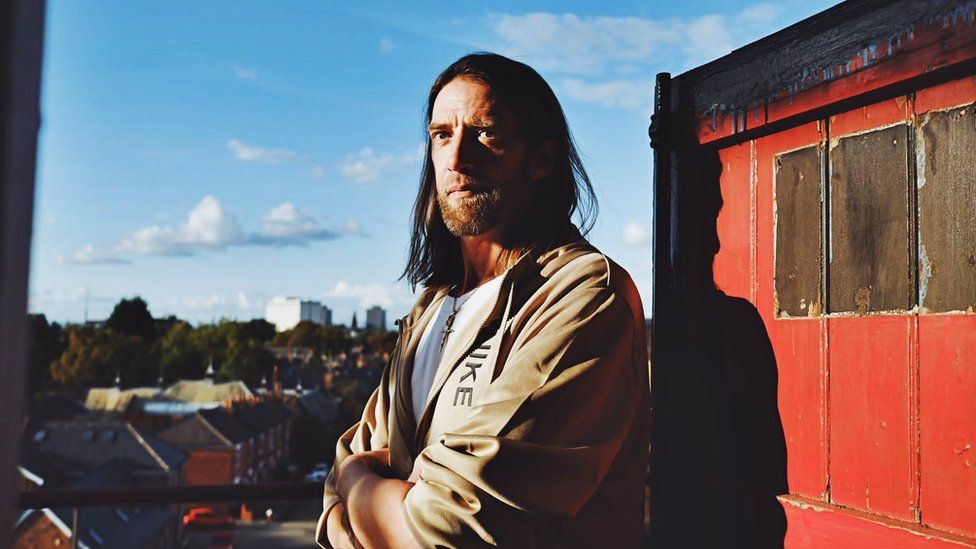
A former conspiracy theorist has found speaking out about misinformation has given him “a whole new lease of life”.
Bristol-based Brent Lee, 43, got sucked into the so-called truther movement in his early 20s when the UK was on the brink of invading Iraq.
He would spend almost 15 years “down the rabbit hole”, as he terms it, believing every atrocity from 9/11 to mass shootings was being orchestrated by a “satanic elite”.
Ultimately it was the rise of American far-right pundit Alex Jones and his insistence that the Sandy Hook school shooting was a hoax that made Brent question his own beliefs.
‘No catalyst’
When he first started to pay attention to conspiracy theories, there was nothing about Brent that would have marked him out as vulnerable to misinformation.
He was living in Peterborough, was playing in a band and doing low-paid jobs to help him get by while he tried to build a career as a musician.
Speaking to BBC West, he said: “I felt happy, I had a big circle of friends through music, nothing had happened – there was no catalyst.”
Instead it was general distrust in the then-government and its claims about Saddam Hussein’s weapons of mass destruction that allowed conspiracy theories to take hold.
It was not a big stretch for Brent to believe the attack on the Twin Towers was an inside job, he recalled.
“I just had this strong anti-war sentiment and the conspiracies gave me an answer as to why that was happening.”
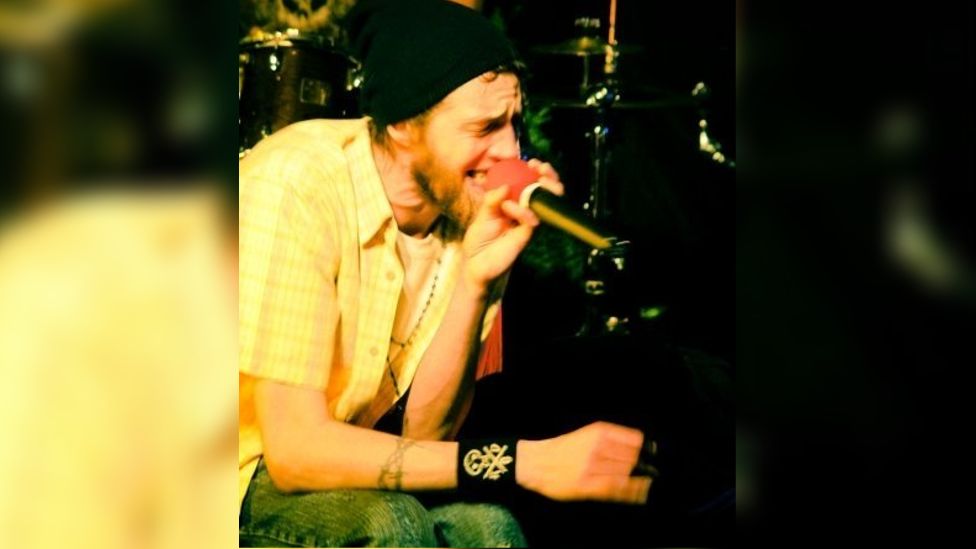
Within a few years, Brent believed that the world was being controlled by an occultist, paedophilic elite.
He began to believe that every outrage such as war crimes and school shootings were rituals or sacrifices by this shadowy group.
His beliefs opened a rift between him and most of his friends.
During the early days of social media he began building a big community of fellow truther musicians, showcasing their work on platforms like MySpace, Facebook and his blog.
The majority of Brent’s relationships were now conducted online with people spread across the world.
“Not just the bands and the artists but also the fans of all these people – that was my community for quite a few years,” he said.
His new belief system would have a fundamental impact on Brent’s life.
“I didn’t pursue any career properly. I didn’t think about a mortgage, I didn’t think about all the normal kind of things that people do,” he said.
Brent feared having kids because he didn’t want to bring them up “in the new world order” but now feels he has missed out.
Sandy Hook
The 2012 mass shooting at Sandy Hook Elementary School in Newtown, Connecticut, in which 26 people including 20 young children were killed, proved a turning point for Brent.
The belief that it was a hoax designed to toughen America’s gun laws became the dominant narrative among conspiracy theorists – a narrative heavily promoted by Alex Jones on his InfoWars website.
This jarred with Brent’s own belief that victims of shootings and other atrocities were being sacrificed by a satanic elite.
It shook him just enough that he slowly started to question the foundations of his thinking.
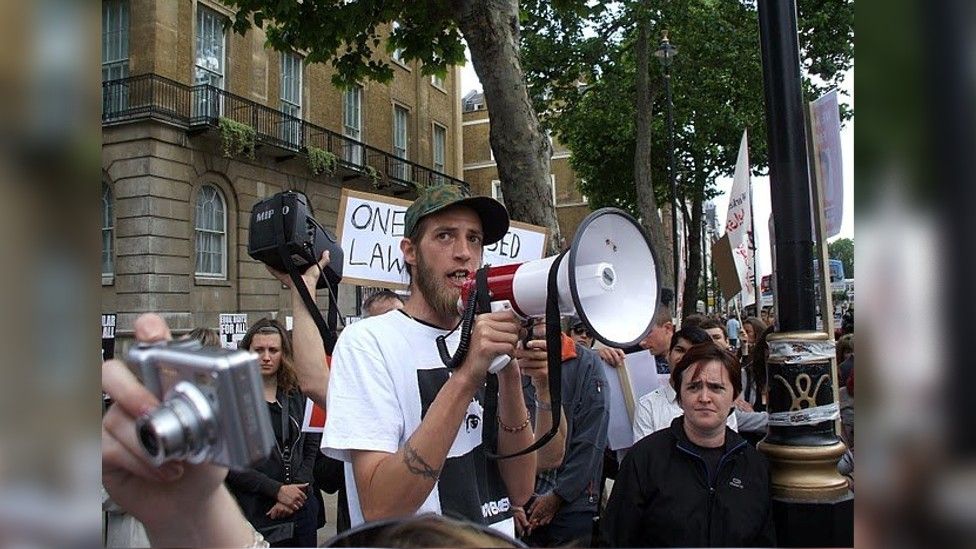
But it would be another six years before he left his online truther world completely – helped along by several seismic shocks in the UK and US political system.
“I always thought that these elections were rigged, that they were predetermined,”he said.
He believed Hillary Clinton would stroll to the White House, the UK would vote remain in the Brexit referendum and Jeremy Corbyn would never become Labour leader.
“All three things were the complete reverse,” he said.
He realised these had happened through “people power” and were not the work of some shadowy global cabal pushing its chosen candidates into power.
‘Answers’
Brent believes that conspiracy theories gave him a way of making sense of a world that seemed fundamentally unfair.
“I felt there must be a reason why this world isn’t fair, there must be a reason why these things are happening and (conspiracy theories) give an answer as to why.”
He added: “Conspiracy theories are actually really hard to deal with, but also at the same time at least there is an answer.”
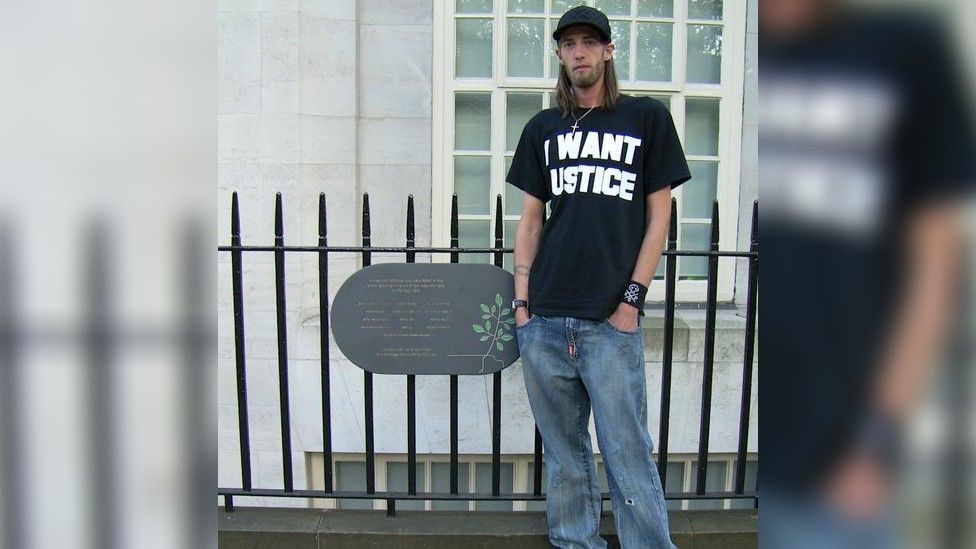
‘Speaking out’
Since launching a blog speaking out against misinformation, Brent has himself been accused of being an actor by conspiracy theorists.
But he said the outpouring of support he has received has helped replace the community he lost when he stepped away from the truther movement.
“It has given me a whole new lease of life – I wasn’t expecting people outside of the truther community to want to hear what I had to say,” he said.
“People found it useful hearing from someone who believed that stuff and why they believed it – putting things into context really helps people understand.”
“That’s what I found with conspiracy theories, putting the theories into context helps dismantle them.”

‘Trust in institutions’
Dr Daniel Jolley, a social psychologist studying conspiracy theories, believes at their heart they are a way of “making sense of a very complex and scary world”.
The fact Brent was able to reassess his entire world view largely by himself is “pretty rare”, Dr Jolley said.
“Conspiracy beliefs are so hard-wired and they become such a part of your identity that changing that identity becomes really difficult,” he said.
This can be particularly tough for people who are already socially isolated.
“You may have started this journey because you felt lonely, you were looking for answers, and suddenly you are back to where you started.”
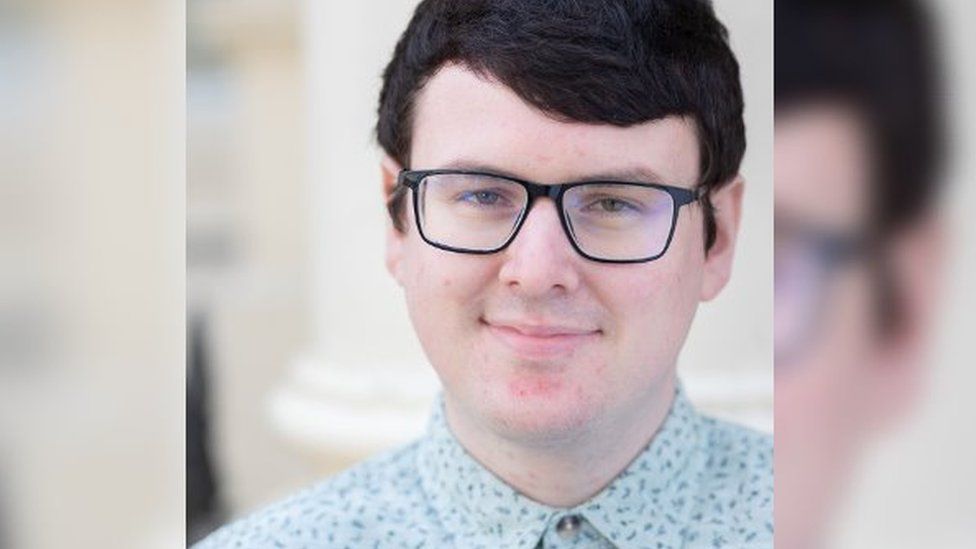
But the fact Brent’s interest in conspiracy theories began with a general distrust in the government is something Dr Jolley has seen over and over in his research.
Spin and obfuscation from those in power can create “fertile ground” for conspiracy beliefs, he said.
Tackling conspiracy theories is “about having trust in our institutions and trust in our journalists to try and pull out the lies”.
While mental health conditions such as anxiety and paranoia might sometimes play a role, there is no psychological profile for a conspiracy theorists.
“It could really be any of us,” Dr Jolley said.



